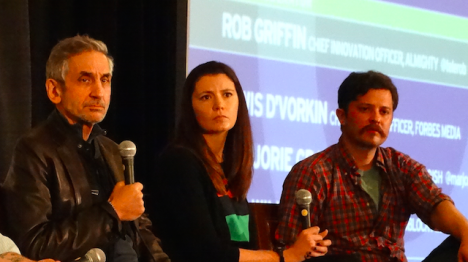Major adblocker executive says adoption of the technology is never likely to pass 30%
A senior executive at a major adblocking company has said the technology has developed as a ‘blunt instrument’ and said he does not expect the saturation levels of the technology to go much past 28% of people globally.
Speaking on a panel on the rise of adblockers and the issues presented to publishers Ben Williams, head of operations for Adblock Plus said they wanted to make the tech “less like a baseball bat and more like a scalpel”.
He was speaking alongside chief product officer for publisher Forbes, Lewis Dvorkin, who insisted the company was not “going to war” with people using adblockers, despite moving to block people who have installed them from using its site in December.



97% people don’t see web ads anyhow, why bother?